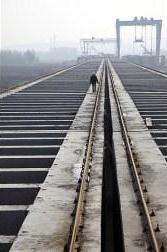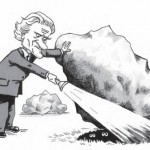I would not normally consider the arrival of a new phone to be newsworthy. However, this one is different – the team behind it have developed a high-performance smartphone that has sought to place social and environmental values at its core without compromising on quality. Steps take include sourcing of minerals from conflict-free mines, a worker welfare fund, social assessment of factory procedures, reducing waste in the supply chain and investing profits into the establishment of recycling fund. I was particularly impressed by the fairphone blog (yes much more active than this one for starters) that revealed in some detail the steps taken, their successes – but was also very honest about the barriers and limits. This transparency provided a fascinating insight into the complexity of implementing social and environmental values into global supply chains, and its honesty is refreshing.
They have now sold and shipped their first 25,000 units – and I am a proud owner of a specially marked “First Edition” phone. Aside from my natural passion for sustainable living, this initiative seemed particularly relevant to the iBUILD Infrastructure Business Models research programme that I lead. A core goal of iBUILD is to try and harness the social and environmental value of infrastructure. Parts of the iBUILD programme explicitly focus on issues around the infrastructure supply chain and the interdependencies between infrastructure and the economy – that provide challenges but also opportunities. Although the gulf between mobile phones and infrastructure may seem large, I think there is much that we can learn from the fairphone journey!






